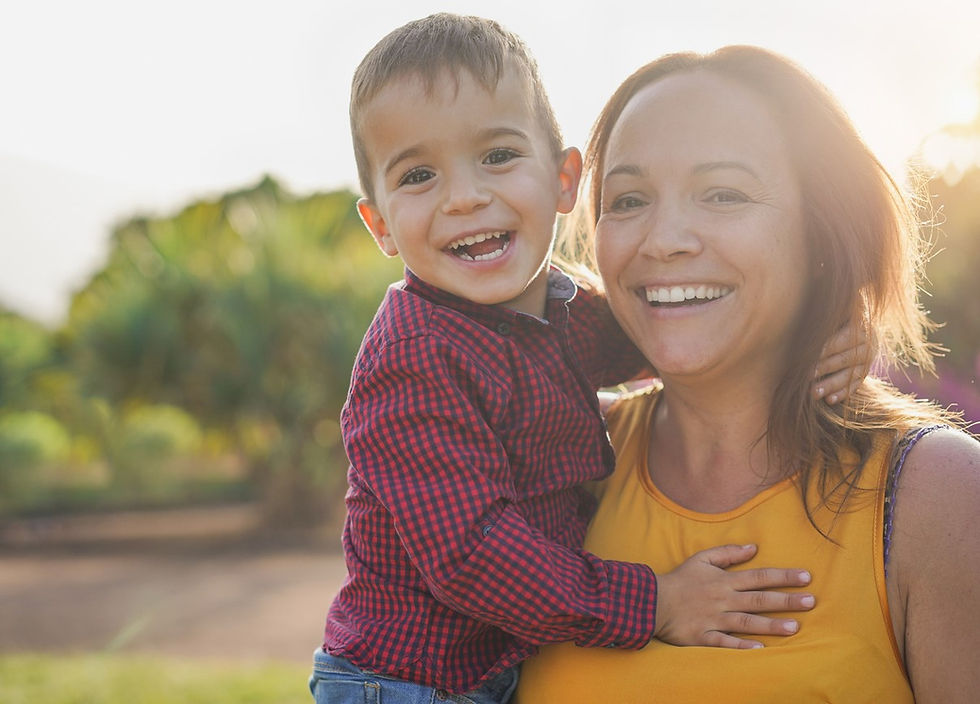Ask Yesenia: Developing and Attitude of Gratitude
- Yesenia Gomez-Carrillo
- Oct 30, 2025
- 3 min read
Some days, I get so caught up in work, chores, and the busyness of everyday life that I forget to slow down and really notice the little things. Watching my daughter play, hearing her laugh at something silly, or seeing sunlight spill across the living room—these small moments often pass by before I even register them. Lately, I’ve been making an effort to pause more often: to feel the warmth of the sun on my face, savor a quiet cup of coffee, or simply take a deep breath. Doing this reminds me how much there is to be grateful for, and how much richer life feels when I slow down and truly take it in.
This monthly article provides tips for anyone raising children, based on the world-renowned Triple P – Positive Parenting Program, available to families in Santa Cruz County. If you have question or idea for a future column, please email me at triplep@first5scc.org.
Dear Yesenia,
I have great kids (7 and 9) who are polite, get along with each other, and don’t have any behavior issues (yet). I’d like some ideas, though, about how to teach them to be grateful for what they have, instead of always wanting or feeling entitled to have more things. Do you have any tips for me?
- Ernesto
Dear Ernesto,
What a great question! It’s common for children – and many adults – to behave in ways that appear self-centered, materialistic, or constantly dissatisfied. It might seem like these behaviors are part of human nature or our society that we have to accept, but they are actually learned behaviors that can be reduced or replaced with gratitude. In fact, research shows that having an attitude of gratitude changes the structure of the human brain, making people feel happier, healthier, and more peaceful. Here are some tips to try:
Set a good example. Take time to notice the things you are grateful for, even if it’s something that seems trivial. Talk to your children about the peace, satisfaction, or happiness that you feel when you watch the sunset, smell your favorite food, read a good book, get their help with chores, or put on your sweatpants and slippers at the end of a long day. Avoid complaining or criticizing other people or things, especially in front of your children. Remember they are constantly watching, listening, and learning from you – even when it seems like they are ignoring you.
Make gratitude a daily habit. Ask your children to identify one thing they are grateful or thankful for each day. Younger children might enjoy drawing pictures of the things that make them feel content and peaceful. Older children can also draw, write in a journal or take pictures. Have conversations about the things they appreciate during mealtimes, bedtime, or as you’re going about your daily activities. These simple steps can teach children to notice and find joy in the everyday moments of their lives.
Give them responsibilities at home. Running a household and raising children is hard work! Give children age-appropriate chores and responsibilities to teach them that family life runs more smoothly when everyone pitches in. Give descriptive praise and positive attention to show your appreciation when they help with laundry, dishes, cleaning, feeding pets, or doing yardwork. This will encourage them to continue being helpful, as well as increase the likelihood that they’ll be grateful – instead of taking it for granted – when other people do things for them.
Encourage children to help and care for others. Receiving gratitude from other people gives children the chance to feel good about being kind, helpful, and generous. Try to find an activity your whole family can help with – provide baked goods for a school fundraiser, serve meals at a shelter, pick up trash in your community, or visit seniors who live alone without family close by. Involve your children in picking the activity and talk about how it will be helpful. Acknowledge their helpfulness during the activity, then talk to them afterwards about how they felt. Encourage your children to continue helping others without expecting anything in return, so that they learn to receive gratitude throughout the year.
Final Thoughts: Take a few moments each day to notice the people and experiences that make you happy, content and peaceful. Express your appreciation and gratitude, and teach your children to do the same. Make this a daily habit, and you’ll find that gratitude becomes contagious.
Yesenia Gomez-Carrillo is the mother of a 3-year-old daughter and the Triple P Program Manager for First 5 Santa Cruz County. Scientifically proven, Triple P is made available locally by First 5, the Santa Cruz County Health Services Agency, and the Santa Cruz County Human Services Department. To find a Triple P parenting class or practitioner, visit http://triplep.first5scc.org, http://www.facebook.com/triplepscc, or contact First 5 Santa Cruz County at 465-2217 or triplep@first5scc.org.




Comments